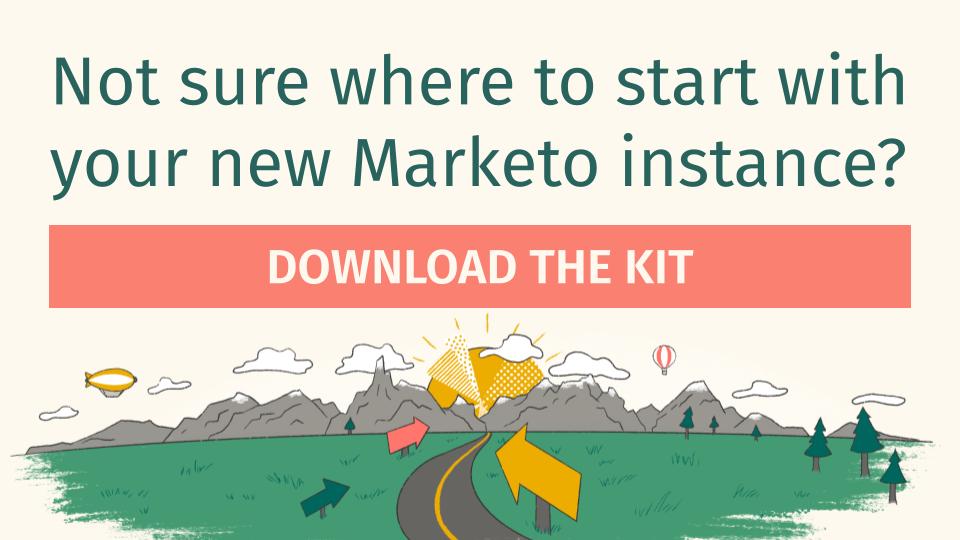Overview
Whether you are implementing a marketing automation platform for the very first time or you are thinking about switching to a new platform, the decision can be tough. Not only is price a huge factor, but you also need to make sure the platform you choose can actually support your business now and in the future.
While there are other marketing automation platforms out there, I’m going to solely focus on Marketo and HubSpot and what I like about each platform. I have been fortunate enough to work with both fairly extensively during my career so far and have been able to see the good, the bad, and the ugly of each platform. And while pricing can play a huge role in the ultimate decision between the two, I’m only going to cover the capabilities of the products themselves and which platform, I believe, is best for which type of businesses.

What I like about Marketo
The performance of the platform with larger databases.
I’ve worked for companies as an internal employee and with companies as a consultant and have seen vastly different database sizes. That range has been anywhere from a couple thousand records at non-profits to a couple million records at large enterprise corporations. At these larger organizations it’s likely that a lot of data is being tracked on the person, company, and opportunity records just to name a few. Not only that, these larger organizations have many team members wanting to leverage the marketing automation platform to accomplish their goals. In my opinion, Marketo is better suited to withstand that amount of workload. Your lists will run quicker and your data sync with your CRM will run smoother, ultimately resulting in a happier you and happier stakeholders.
No need to manage marketing vs. non-marketing contacts.
Depending upon how you look at it, this could be a positive or a negative. For me, it’s a positive in that it’s one less task I have to worry about. Hear me out on this so there’s no confusion: it is still critical to understand who is marketable from a compliance perspective in Marketo (i.e. referencing the Unsubscribed, Marketing Suspended, and Email Invalid values). Assuming you’re honoring those processes, though, everyone else in your database can be sent emails and is considered marketable. While there’s still potential you can go over your allowable database size limit, it’s something I haven’t had to worry about as much as I have in other marketing automation platforms.
Cleaner organization of marketing efforts and operational processes.
I’m a tidy guy, so I like when I’m able to keep various assets together in a single location with minimal clicks. Marketo programs allow you to have smart campaigns, smart lists, static lists, forms, and emails (just to name a few) organized together without having to switch screens. I feel like I’m on fire when I can be efficient and do my tasks quickly, and Marketo programs aid in this effort.
Advanced filter logic capability on lists.
This will be one of those things you come across one day and realize the importance of having this option available to you. It may come in the form of a request from somebody in leadership asking if you could pull some data. No sweat. You’ve done this before. But then you realize your platform there’s no way to actually pull the data you’re looking for. That’s why advanced logic and constraints within your smart lists are such a huge win and will allow you to serve your business partners much better.
What I like about HubSpot
The visualization of workflows.
I’m a visual guy, and I’m sure many of you reading this also appreciate a good visualization when trying to comprehend a concept. With this functionality creating nurture or drip campaigns in HubSpot feels much easier to implement, as you are able to understand how people can move through various decision points. Additionally, the data provided to you to understand what percentage of people fall into which decision point can help you report out to your stakeholders in an efficient manner and make quick updates.
Intuitive email and landing page builders.
Coming from somebody who is not that well versed in designing email and landing page templates, I found this functionality to be exceptionally helpful when working in HubSpot. On the other hand, if you are somebody who would include “template designing” as a skill on their resume, HubSpot can be for you, too, as you can import your own templates. Template platforms are becoming more and more popular these days, but if that’s not an option I would feel comfortable using the out-of-box templates HubSpot provides.
Only pay for the contacts you are marketing/sending emails to.
Same as the second point above in the Marketo section, this can either be a positive or a negative depending upon how you look at it. HubSpot distinguishes between marketing and non-marketing contacts. Essentially this is a way to continue collecting records in your database but only pay for the records you are emailing. I’m a fan of the concept, you’ll just need to make sure you have strict governance in place to ensure you remain under your allowable limit.
Built-in compliance configurations.
This is especially helpful if you aren’t the most mature of a company in this realm. We all know remaining compliant within your marketing automation platform is critical to the success of your business, so having the mechanisms in place to guide you along the journey to compliance is helpful. Whether it’s legitimate interest, GDPR compliance, or even just including your privacy policy, HubSpot has you covered.
Easy for new users to learn.
Simply put, HubSpot looks good. It has a modern interface, helpful instructions throughout the product, and great documentation. Your teammates and other stakeholders might find other marketing automation platforms not so straightforward, but I felt I was able to pick up HubSpot fairly quickly. This benefit really depends upon the size of your department and who you plan on using the platform. If it’s a larger audience with varying degrees of knowledge, HubSpot would be great for your team.
Which platform is right for me and my company?
Using my classic consulting response, it depends. There are a variety of factors that you should consider when first implementing or switching out your existing marketing automation platform. Here some thoughts to start considering with you and your team:
- How big is your database currently? Do you foresee that number significantly growing in the next few months/years? Does it take a long time for your database to render? Chances are if your answers tend to lean towards the higher end, Marketo will be better suited for your company. Similar to how you should dress for the job you want and not the one you have, prepare for the database you will have and not just the database you have now.
- How many people are going to be working in your marketing automation platform on a day-to-day basis? Do you have a fairly lean team (3-5 folks), or is it more than that? In my experience, smaller teams are better suited for HubSpot, especially if your team requires a little more guidance as they navigate a marketing automation platform.
- How many other tools do you have in your martech stack? How sophisticated are those other tools? Do they hold product usage data you are looking to leverage in your marketing automation platform? Larger enterprises will usually have more technologies in their stack and look to integrate more data from other platforms, in which case I would recommend Marketo.
The list obviously isn’t exhaustive, but I hope it at least gives you an idea of where to start and which kind of questions to ask yourself and your teammates. Evaluating your current state and your future state are both essential when you come across a decision like this.
Conclusion
Both Marketo and HubSpot are both solid marketing automation platforms, and each one has their good, bad, and ugly aspects about them. As a whole, I believe HubSpot is better for growing organizations with lean marketing operations teams, while Marketo is better suited for your large enterprise organizations. If you’re thinking about implementing a marketing automation platform for the first time or making a switch to either of these tools, contact our team today for more information.







